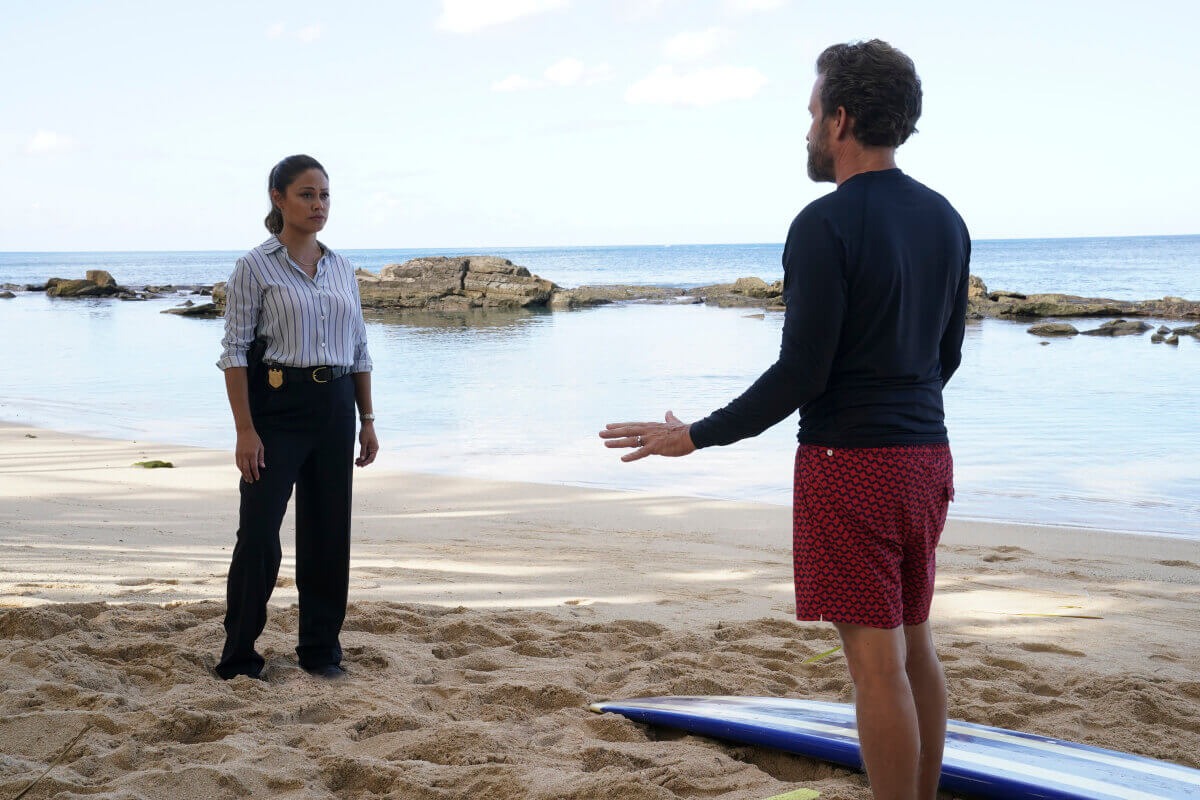
I understand that filming on the island is expensive, but at the very least, CBS is already guaranteed returns, considering NCIS: Hawai’i’s success. Reisenbach revealed that they looked at the numbers, which informed their decision. That said, viewership data revealed that NCIS: Hawai’i ranked as the 16th overall most-watched series during the 2023-2024 season — a big improvement from its previous year. Moreso, Its series finale ranked at number 11 in terms of the largest 7-day lift for primetime endings airing on the key broadcast networks. That’s a solid indication that it is trending upwards.
From an outsider’s perspective, I don’t think that CBS can chalk NCIS: Hawai’i’s cancelation up to cost-cutting while also devoting resources just to launch an untested show such as Einstein.
Considering its growth, why clip its wings before it can even reach its full potential? Upon its cancelation, NCIS: Hawai’i became the shortest-running show in the famed police procedural franchise. Unless there was something else at play, it doesn’t seem like the network was in such a dire position that it had no choice but to unceremoniously end the Lachey-led project. From an outsider’s perspective, I don’t think that CBS can chalk NCIS: Hawai’i’s cancelation up to cost-cutting while also devoting resources just to launch an untested show such as Einstein.
CBS, what were you thinking? In a landscape where every network is scrambling to keep its audience glued, canceling a solid performer like NCIS: Hawai’i seems… well, financially tone-deaf. This wasn’t just another spin-off. It was a rising franchise darling with fan support, a powerful lead, and fresh island vibes that drew consistent viewership. So why did CBS shut it down? Let’s dive deep into why keeping NCIS: Hawai’i alive would have been a strategic goldmine, not just another show on the roster.
The NCIS Franchise: A Ratings Powerhouse
The Legacy of NCIS
The original NCIS launched in 2003 and has since become one of the most enduring franchises in American television. With spin-offs like NCIS: Los Angeles and NCIS: New Orleans, CBS built a small empire of procedural dramas.
Enter NCIS: Hawai’i – A Fresh Take
Debuting in 2021, NCIS: Hawai’i brought a refreshing energy with its island setting, diverse cast, and strong female lead—Vanessa Lachey as Special Agent Jane Tennant.
Viewership Numbers Don’t Lie
Despite being the newest in the franchise, NCIS: Hawai’i consistently drew millions of weekly viewers. It didn’t just survive—it thrived.
Financial Success Stories of Procedural Dramas
Procedurals Are Built-In Profit Machines
Procedural dramas like NCIS are TV’s golden goose. They’re formulaic, predictable (in a good way), and endlessly binge-worthy. Syndication, streaming deals, and international sales? That’s where the money really piles up.
Global Syndication Potential
NCIS shows are syndicated in over 200 territories. Hawai’i was next in line to rake in global revenue for years to come.
Diversity and Representation: More Than a Buzzword
Inclusive Casts Drive Engagement
NCIS: Hawai’i was CBS’s first NCIS series with a female lead and one of the most diverse casts in the franchise. That matters. Viewers care about seeing themselves on screen.
Cultural Relevance Attracts Younger Viewers
Younger audiences are more socially aware and demand inclusive storytelling. This show delivered just that—and CBS just walked away from it.
The Fallout: CBS’s Risky Bet
Why Fix What’s Not Broken?
With stable ratings and growing fan loyalty, canceling NCIS: Hawai’i was like throwing away free money. It’s rare for a network to have a show that delivers reliably week after week.
Fans Aren’t Happy—And They Matter
Social media exploded when the news broke. Fans felt betrayed. And in the age of audience-driven content, that kind of backlash is bad for brand equity.
Streaming and the Long-Tail Value
Ever Heard of Evergreen Content?
Procedural shows perform exceptionally well on platforms like Netflix and Paramount+. Why? Because you can jump in at any episode. That’s evergreen value. NCIS: Hawai’i was tailor-made for the streaming generation.
Rewatchability Equals Revenue
The more rewatchable a series, the more streaming services pay to license it. CBS could’ve kept cashing checks for years.
Location, Location, Location
The Hawai’i Backdrop Was a Brand in Itself
The scenic shots weren’t just pretty—they were promotional gold. Tourism agencies, local business tie-ins, and even product placement opportunities were all ripe for monetization.
Star Power: Vanessa Lachey Was Just Getting Started
Lachey’s Rising Influence
Vanessa Lachey brought star power, authenticity, and relatability. As the first female lead in an NCIS series, she carried the torch with grace—and fans loved her for it.
Strong Characters Build Strong Franchises
CBS built an emotional connection with viewers through Lachey’s portrayal of Jane Tennant. And that connection? Priceless.
Franchise Expansion: Missed Opportunity
Spinoff Within a Spinoff? Why Not!
NCIS: Hawai’i could’ve spawned its own sub-franchise. Think: NCIS: Pacific, NCIS: Japan, or even NCIS: Australia. The possibilities were endless.
Network Strategy Misfire
Was It About Budget Cuts?
Sure, budget constraints are real—but canceling a profitable show to save pennies can cost millions in long-term revenue.
Strategic Misalignment
If CBS wants to focus on streaming, then axing a strong streaming performer like NCIS: Hawai’i sends mixed signals.
Audience Loyalty Is the Real Currency
Viewer Retention Over Time
Loyal viewers return season after season. They tweet, they post, they recommend. They’re the reason some shows survive purely by fandom.
CBS Just Alienated a Big Fan Base
You don’t build brand loyalty by abandoning your audience. That’s marketing 101.
Critical Acclaim & Awards Potential
Recognition Builds Value
While not yet an Emmy darling, NCIS: Hawai’i was building momentum. Continuing the show could’ve eventually led to critical acclaim—boosting its long-term value.
The Future: Can CBS Recover from This?
CBS has made bold decisions before—some smart, some questionable. But the decision to cancel NCIS: Hawai’i might go down as one of its worst in recent memory. If there’s a silver lining? Fan demand might just be strong enough to bring it back, à la Brooklyn Nine-Nine or Lucifer.

Conclusion
Let’s face it—canceling NCIS: Hawai’i wasn’t just disappointing, it was a strategic blunder. CBS walked away from guaranteed revenue, an engaged fanbase, international success, and a culturally relevant show with years of growth potential. In today’s cutthroat entertainment landscape, you don’t kill the goose that lays the golden eggs. Only time will tell if CBS will learn from this mistake—or if another network or platform will swoop in and pick up the pieces. Because NCIS: Hawai’i still has a pulse—and fans aren’t ready to say goodbye.